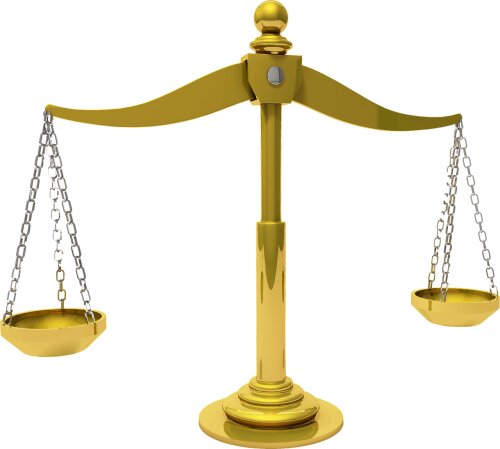Best Native People Lawyers in Mthatha
Share your needs with us, get contacted by law firms.
Free. Takes 2 min.
List of the best lawyers in Mthatha, South Africa
About Native People Law in Mthatha, South Africa
Mthatha, a city in the Eastern Cape province of South Africa, is rich in cultural heritage and history, with a significant portion of its population comprising indigenous communities. Native people law in Mthatha primarily deals with issues concerning traditional authority, land rights, cultural preservation, and the management of natural resources. These laws aim to protect the rights of native people to practice their cultural norms while ensuring their inclusion in the socio-economic development of the region.
Why You May Need a Lawyer
Many situations may arise where seeking legal advice becomes essential for native people. Common scenarios include disputes over land rights, issues related to traditional leadership and governance, protection of intellectual property pertaining to indigenous knowledge, and ensuring fair practices under national and local development projects. Legal assistance can also be crucial in addressing grievances related to access to health care, education, and other public services.
Local Laws Overview
Local laws in Mthatha encompass a range of acts and regulations that affect the native population. The Traditional Leadership and Governance Framework Act provides a basis for recognizing traditional leaders and customary councils, ensuring their roles align with national laws. Additionally, the Restitution of Land Rights Act allows for claims from indigenous communities who lost land due to past discriminatory practices. Emphasis is also placed on preserving the cultural heritage, including languages and customs.
Frequently Asked Questions
What is the role of traditional leaders in Mthatha?
Traditional leaders in Mthatha play an integral role in representing native communities, resolving disputes, and maintaining cultural practices within the framework of both traditional laws and national legal standards.
How can native people in Mthatha claim land rights?
Native people can claim land rights through the Commission on Restitution of Land Rights, which oversees applications for land restoration or compensation where land was forcibly taken during the apartheid era.
Are native customs legally recognized in Mthatha?
Yes, native customs are legally recognized under South Africa's constitution, which respects the cultural and religious practices of indigenous communities, provided they do not conflict with national laws.
What legal protections exist for indigenous knowledge and practices?
The Protection of Traditional Knowledge Copyright Amendment Bill aims to safeguard indigenous knowledge and cultural expressions, preventing misuse or exploitation without community consent and proper benefit-sharing.
What is the impact of local development projects on native people?
Development projects can impact native people's livelihoods and land rights. Legal guidance is vital in negotiating terms that ensure fair compensation and benefit-sharing, safeguarding cultural sites, and community involvement in decision-making.
How does the law address conflicts over resource management?
Laws encourage collaboration between local government, traditional councils, and communities to ensure equitable resource management, with legal recourse available for disputes that arise.
Can native people access free legal services in Mthatha?
Yes, there are legal aid organizations and non-profit bodies that provide free or subsidized legal services to indigenous communities, ensuring access to justice regardless of economic status.
How are women's rights protected within native communities?
Women's rights are protected under national legislation, and efforts are being made to ensure their participation in traditional governance structures, although cultural practices may vary significantly by region.
How can disputes within native communities be resolved?
Disputes within native communities are often initially addressed through customary laws and traditional leadership, with the option of mainstream legal intervention where resolutions require formal legal backing.
Who enforces native people's rights under these laws?
Enforcement is carried out by a combination of traditional councils, local governments, and national bodies like the Department of Justice and Constitutional Development, ensuring alignment with broader legal frameworks.
Additional Resources
Individuals seeking legal advice regarding native people in Mthatha can consult the Legal Resources Centre, the South African Human Rights Commission, and the Commission for the Promotion and Protection of the Rights of Cultural, Religious and Linguistic Communities. These organizations provide valuable information and support to indigenous communities facing legal issues.
Next Steps
If you require legal assistance, consider reaching out to organizations dedicated to indigenous rights, such as the Legal Resources Centre or local law firms with expertise in native people law. Schedule a consultation to obtain professional legal advice tailored to your specific situation, and always ensure that any legal representative you engage is well-versed in both traditional and national South African laws. Additionally, engage with local community leaders who can offer insight and support in navigating disputes or legal processes.
Lawzana helps you find the best lawyers and law firms in Mthatha through a curated and pre-screened list of qualified legal professionals. Our platform offers rankings and detailed profiles of attorneys and law firms, allowing you to compare based on practice areas, including Native People, experience, and client feedback.
Each profile includes a description of the firm's areas of practice, client reviews, team members and partners, year of establishment, spoken languages, office locations, contact information, social media presence, and any published articles or resources. Most firms on our platform speak English and are experienced in both local and international legal matters.
Get a quote from top-rated law firms in Mthatha, South Africa — quickly, securely, and without unnecessary hassle.
Disclaimer:
The information provided on this page is for general informational purposes only and does not constitute legal advice. While we strive to ensure the accuracy and relevance of the content, legal information may change over time, and interpretations of the law can vary. You should always consult with a qualified legal professional for advice specific to your situation.
We disclaim all liability for actions taken or not taken based on the content of this page. If you believe any information is incorrect or outdated, please contact us, and we will review and update it where appropriate.








